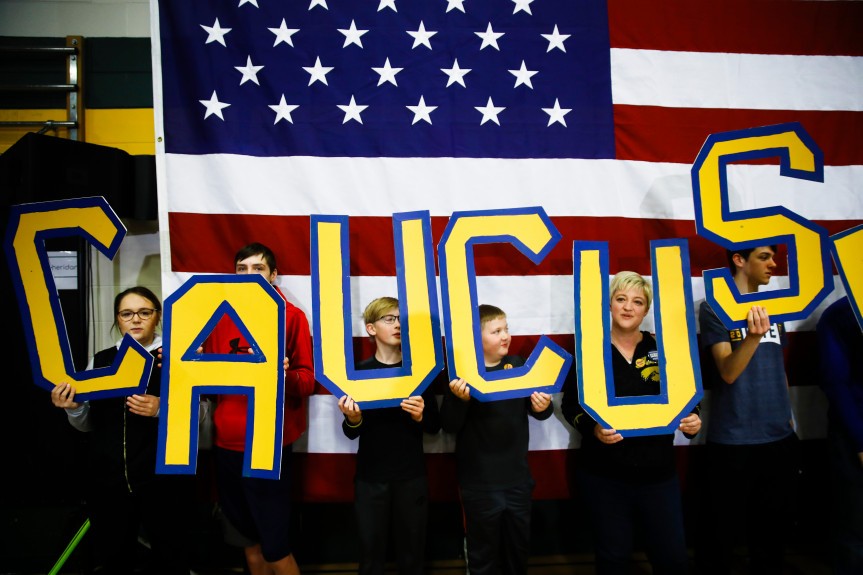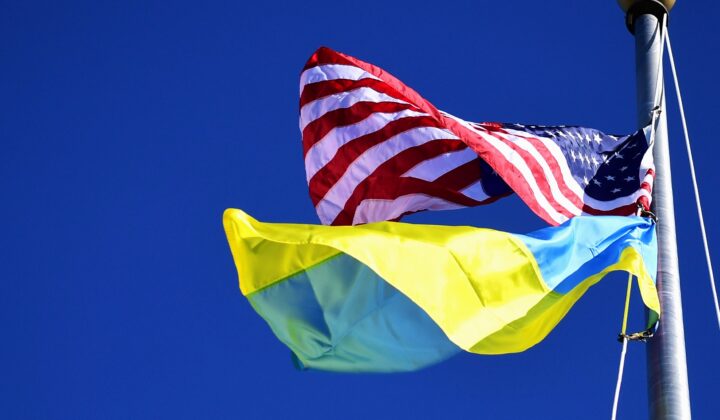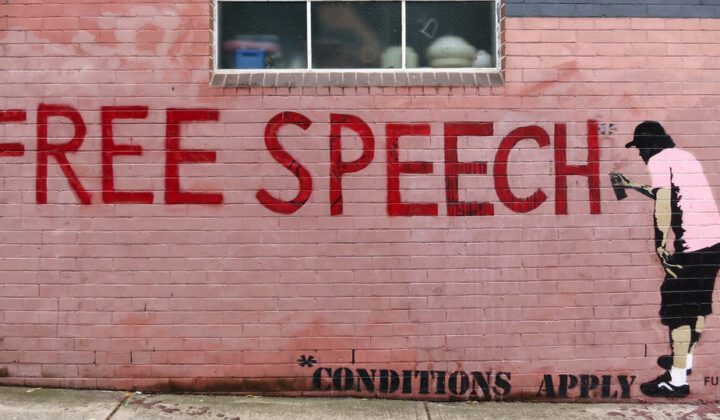Chaos at the Caucus
As of 11 PM on February 5th, more than two days after the Iowa caucuses, results are still trickling in without a definitive winner. Election night was thrown into chaos and uncertainty when the voting app designed to communicate results from individual precincts to the state Democratic Party broke down. Indeed, instead of the suspenseful waiting game and victory speeches that normally characterize elections in America, by the end of Monday night, we had zero percent of Iowa precincts reporting. Furthermore, conspiracy theories abounded from all across the political spectrum that the process had been rigged. And Pete Buttiegeg all but declared victory in a speech based on his own internal numbers rather than actual, verified results.
- The votes are now being counted and we’ll soon have a winner. So why does the initial debacle matter?
The core element of democracy is that the people choose their leaders, from the local member of city council to the president of the United States. It is, therefore, essential that the people trust the elections to be free and fair—an accurate reflection of their popular will. Otherwise, they won’t view the winner as legitimate. And what happened in Iowa likely undermined the people’s confidence in the process. Indeed, there is every indication that officials with the Iowa DNC rolled out a new reporting app without sufficient testing and quality control. Far from anything nefarious, they simply did not know what they were doing. Moving forward, this incompetence in Iowa might shake our confidence in election officials and new computer technology, generally speaking, to accurately report results. - Why is this important for 2020?
The Russians interfered in the 2016 presidential election, hacking the emails of the DNC and orchestrating a social media campaign to sow division among Americans. And the intelligence community has stated publicly that there is every indication that the Russians will attempt more of the same in 2020. Furthermore, although there is no indication at all that any votes were changed, state election sites were targeted by the Russians. Under these circumstances, it is essential that Americans have faith in election officials and, importantly, in each other. What happened in Iowa over the past several days has undermined that faith, a development which stresses democracy.

A Crisis for India’s Secular Democracy
Since December, India has witnessed a mass movement protesting a citizenship law that many believe to be anti-Muslim. The movement recently gained momentum on India’s Republic Day—the national holiday honoring the passage of its Constitution in 1950. Over a hundred thousand people protested in the form of a human chain in the southern state of Kerala. Other human chains in the country have spanned miles. And near Mumbai, a women-only protest counted more than 20,000 in its ranks. However, Prime Minister Modi has increasingly responded to the popular uprising with force and violence, prohibiting public gatherings, and jailing and even torturing leaders of the movement.
Some Context: Prime Minister Modi and his Hindu-nationalist Bharatiya Janata Party have launched policies that have the potential to disenfranchise millions of Indian Muslims. In December, the government passed a law essentially granting undocumented immigrants in India a streamlined pathway to citizenship for all religions except Islam. Now the government is considering whether to implement a National Register of Citizens (NRC), which would force every Indian citizen to prove citizenship by documentation.
- Who counts as a citizen?
Modi claims that the NRC is meant to aid persecuted minorities from Muslim-majority countries, but taken together, the two laws could have the effect of dispossessing Indian Muslims of their citizenship. Stated another way, many Indians, both Hindu and Muslim, lack the documentation necessary to prove citizenship and thus could lose that status under the National Registry. Hindus, however, would have the opportunity to regain it by applying through the new citizenship law. Furthermore, the National Registry by itself might discriminate against Muslims because they are disproportionately poor, and therefore, more likely to be without documentation. - Why is this important to the rest of the world?
India is by far the world’s largest democracy, home to over 1.3 billion people. The country has also increasingly become a world power. As a result, the way it conducts its affairs, both domestically and abroad, can reverberate well beyond its borders. The fact that India is undermining important democratic norms at home has the potential to encourage other countries to go down anti-democratic paths. This is especially problematic when you consider the worldwide trend toward authoritarianism in recent years and the ascendancy of China as a superpower to possibly rival the US. The world is becoming increasingly less hospitable to democratic nations.

Growing Movement to End Prison Gerrymandering
New Jersey Governor Phil Murphy recently signed a bill ending prison gerrymandering in his state. Prison Gerrymandering is the practice of counting a prisoner’s location of incarceration as their residence (see this NYT op-ed for a good summary). Since legislative districts are determined by population, this practice benefits non-incarcerated residents of that district. New Jersey is the seventh state to pass legislation ending this practice. Maryland passed a law in 2010 that was affirmed by the Supreme Court in 2012. New York passed a law in 2010 that was upheld by The New York Supreme Court in 2011. There is a growing movement in states across the country to pass similar legislation.
- Is prison gerrymandering the same thing as partisan gerrymandering?
No, they are not the same. Partisan gerrymandering is the process of drawing congressional and legislative districts by cracking and packing them in a way that unfairly advantages one political party over another. Because of innovation in computer technology, politicians and political parties know exactly how to draw the lines and divide districts to maximize their electoral advantage. In some of the most egregious cases, a political party has held a solid majority in a statehouse without a majority of the statewide popular vote.
Prison gerrymandering is not the process of carving up districts to unfairly benefit one party or politician. Since prison gerrymandering is simply a function of how the Census counts people’s residences, politicians aren’t necessarily wielding it like partisan gerrymandering. However, like partisan gerrymandering, it still unfairly promotes the voices of certain citizens and constituencies over others. - How is the US tackling the problem of gerrymandering?
There is a movement nationwide to end prison gerrymandering. 25 percent of Americans are living in states that have ended this practice. This is in line with a broader effort to end all types of gerrymandering, including partisan. In fact, 70 percent of Americans are against partisan gerrymandering. Although the Supreme Court ruled that “partisan gerrymandering present[s] political questions beyond the reach of the federal courts,” movements across the country have led to state-wide laws and referendums to end the practice.

Is Malaysia Turning a Democratic Corner?
In the Economist Intelligence Unit’s (EIU) Democracy Index 2019, which rates countries’ level of democracy on a scale from 1 to 10, the South East Asian nation of Malaysia garnered a score of 7.16. Its score the previous year was 6.88, allowing it to rise 9 places in EIU’s global ranking. The key areas in which Malaysia’s democracy made the most gains have been in its electoral process and pluralism. These significant improvements occurred after the inauguration of a new era in Malaysian politics when the Barisan Nasional (B.N.) was defeated by the opposition Pakatan Harapan (P.H.) coalition in the 2018 election. The B.N. and its predecessor, the Alliance Party, had maintained a semi-authoritarian de-facto one-party system, at least at the federal level, since 1957.
- What specific actions have been undertaken in Malaysia since the 2018 election?
After the 2018 election, the P.H. coalition formed an Electoral Reform Committee (ERC). The commission has solicited the public’s views on the electoral system, collaborated with the United Nations Development Program for Electoral Reform Assistance Project, and is examining alternative electoral systems like proportional representation and Mixed-Member Majoritarian, a mix of voting for individuals and party lists.
The P.H. controlled House of Representatives has also repealed the “Anti–Fake News Act,” which created a hostile environment for the press by prescribing large fines and prison sentences of up to 6 years for publishing partly or wholly false news. Press freedoms have increased with the unblocking of certain news sites and the dropping of sedition charges against some critics. And other civil liberties have been strengthened with university students being granted the ability to engage in political activity on campuses and a moratorium on the use of the death penalty. - There’s still a long way to go
The electoral reform commission’s final report is slated for later in 2020 but its recommendations will not be binding. The Parti Pribumi Bersatu Malaysia (PPBM), the party of PM Mahathir Mohamad and a major part of the P.H. coalition, is reluctant to change the system that delivered them victory. Furthermore, ethnic-Malays are still structurally favored over minorities in many areas. - Why is Malaysia’s transition toward democracy relevant to the US?
As a result of increasing polarization and lack of faith in American democracy, it would be easy for many Americans to disengage from the political process. Indeed, why engage in a dysfunctional system where it feels like it’s impossible to affect change? However, as exemplified by Malaysia’s transition toward democracy since its 2018 election, even those living in a semi-authoritarian state can make their voices heard and make real strides towards freedom and progress. Certainly in the United States, despite the country’s flaws and imperfections, Americans have the power to make a difference in local and national politics in a way that most people in the world simply cannot.





